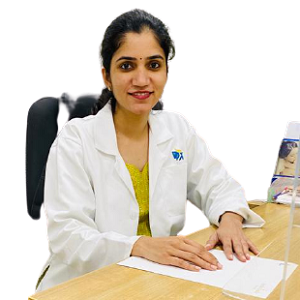Thalassemia and Sickle cell disease are two blood disorders children inherit genetically from their parents. Before we move ahead, let’s know more about these two diseases and whether they have fatal consequences!
What is Sickle Cell Disorder?
This is a genetic blood disorder passed down from the previous generation carriers to the next one. Here, the red blood cells get misshapen into a sickle-like formation. These sickle-like red blood cells do not last long, and they die early. As they die early, there’s always a need for healthy red blood cells, and in medical terms, this situation is called sickle cell anaemia. There’s also an additional problem to this, and you can face a sickle cell crisis, where the dead red blood cells block the normal blood flow causing unbearable pain. Pain, infections, and fatigue are some of the symptoms of this disease. One can get treatment via medication. If the situation gets worse, blood transfusion is the next way out. If nothing works, one can go for a bone marrow transplant.
What is Thalassemia?
This is another inherited blood disorder that children inherit from one or both parents. Here, the blood consists of less oxygen-carrying protein than the normal amount. Apart from less haemoglobin, the patient’s blood also has fewer red blood cells. Red blood cells generally carry oxygen from our lungs to different body tissues via the blood. On their way back to the lungs, they bring back the carbon dioxide formed inside the body. If any part of the body doesn’t get enough oxygen, it won’t work normally. You will face fatigue, paleness, weakness, etc. The absence of red blood cells in babies also results in slow growth. Mild forms of Thalassemia may not require severe treatment, and medication is the only resort. But if it becomes severe, blood transfusions and donor stem cell transplants can save the patient.
If the test result comes positive and you are a carrier, you can abort the baby or consult your doctor for further treatments. If you are a carrier, you will also pass the genes to your baby. Not only the mother but the father should also go for screening as both of them may carry the genes! This screening test should be done early in the pregnancy or just as you plan your pregnancy. If you are 10 weeks pregnant and your medic asks you to undergo the tests, you must do that. If either of you or both of you are positive carriers, you have ways to check whether your baby will be affected or not!
Babies with Sickle Cell Disease
If your baby turns out to have Sickle Cell Disease, you need to go for early treatments, and the medications should start as soon as possible. Vaccination and antibiotics from time to time will help the baby stay away from the disease. Babies with Sickle Cell Disease require extra attention from their parents. If the parents are concerned enough, this will keep the baby safe from serious illness and help him lead a healthier and longer life. SCD is treatable and can be controlled with proper medication and early detection.
What is the screening involved?
Both SCD and Thalassemia screening involve blood tests. The mother is advised to go for the test before she turns 10 weeks pregnant. This will give her ample time to go for more tests if she turns out to be a carrier. Now the parents can decide what they want with their child’s future.
If the mother is a carrier:
The father should undergo the test if the mother is a carrier. The baby won’t have SCD or Thalassemia if the father is not a carrier. But there’s also a chance that the child is a carrier of SCD or Thalassemia. So, if you want to go ahead with the pregnancy, you must talk to your medic before that.
If both parents are carriers
If your baby’s father is also a carrier, there are 1 in 4 cases where your baby will inherit the disorder from both of you. So, you must go for further tests. Through the diagnostic tests, you will know whether your baby is affected or fully unaffected and whether he is a carrier.
Two types of Diagnostic tests are available; Amniocentesis and Chorionic Villus Sampling (CVS).
Chorionic Villus Sampling: If you are an 11 to 14-week pregnant woman, this test can be done for you. A sharp needle will pass through the tummy of the mother to get a tissue sample from the placenta. This tissue will be used for SCD and Thalassemia tests.
Amniocentesis: This test is done if you are 15 weeks pregnant. A sharp needle will pass through the mother’s uterus to take out some fluid samples around the baby. This fluid sample includes some of the baby’s tissues which will be used for SCD or Thalassemia detection.
Request an appointment at Apollo Cradle, DELHI-NCR - Chirag Enclave. Call 1860-500-4424 to book an appointment.
If you are a 10-14 month pregnant lady, you can opt for the tests. It is always a better option to do the tests earlier so that you have time to go for further tests if required.
No, the tests are not harmful at all. But if you find out to be a carrier, you may need to undergo many tests. All those tests involve a chance of having a miscarriage. So, choose the tests wisely and think before taking up any risk.
Both CVS and Amniocentesis have the chance of resulting in a miscarriage. So, you must be very certain about whether to go for the tests! If it is about your baby’s future, you must take the risk and keep it out of danger for the rest of its life.
Our Doctors
Treatments
- Blood Tests
- Down Syndrome Screening
- Early Anomaly Scan
- Fetal Anomaly Scan
- Fetal Echocardiography scan
- Fetal Ultrasound
- Fetal Well-Being Scans With Fetal Doppler
- Nuchal Translucency (NT Scan)
- Pre-eclampsia Screening
- Prenatal Screening & Test
- Screening For Maternal Infections
- Surveillance And Monitoring Of Twin Pregnancies
- Tests For Thalassemia And Sickle Cell Disease
- Viability Scan

 95 Patient Satisfaction Score
95 Patient Satisfaction Score

